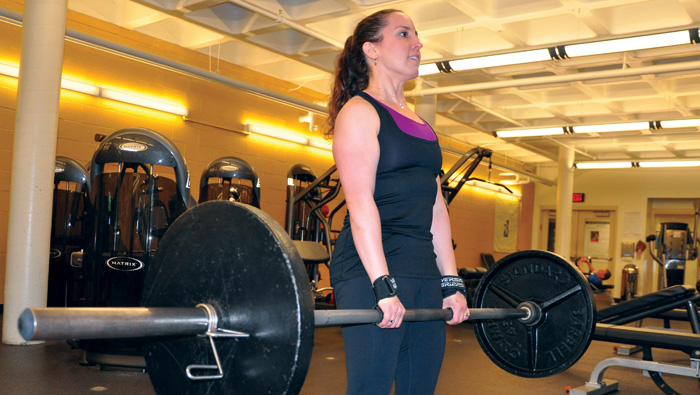
By Dr. Shani Fox, ND
Do you remember the day you finished cancer treatment? You were told to come back for testing in a few months, and your medical team said goodbye.
While you were happy that treatment was over, you may also have felt lost, scared or even abandoned. No one offered any answers about how to recover your energy, regain your emotional bearings and avoid having to do it all again.
Mainstream medicine has recently tried to fill the void in cancer aftercare by smoothing the transition of survivors from oncologists back to their primary care physicians, but studies show that this transfer of support remains weak. Most primary care physicians have little to no training in the unique needs of cancer survivors.
Every cancer survivor deserves a timely transition to an expert practitioner or center, where she can establish trust in a loving and competent support system. However, cancer aftercare must offer much more than periodic screenings for signs of disease. Successful survivorship care isn’t just about keeping you alive, it’s about helping you thrive.
As a holistic physician to cancer survivors, I believe complete care for survivors includes three essential phases.
Phase 1: Support recovery from treatment
Surgery, chemotherapy and radiation all take a notable toll on wellness, with aftereffects that may linger for years. After these difficult treatments, the body begs for a recovery period in which to heal and regather strength. Yet recovery support is not a recognized element of conventional cancer care.
Mainstream cancer treatments severely deplete the body of essential nutrients, impairing energy production and tissue repair. Some treatments adversely impact digestion, making it hard to replenish nutrient levels. The period following treatment is an ideal time to assess and repair digestion while helping survivors adopt nutrient-rich diets to improve energy and speed recovery. A “bridge period” of supplementation with essential nutrients can be very effective in restoring energy and stamina in survivors unable to support their customary activity levels.
Rest is also critical to recovery. Phase I is an opportunity to address sleep issues, or help the survivor renegotiate her schedule and responsibilities to assure she gets enough rest.
In Phase I, survivors feel increasingly stronger and see aftereffects of treatment fade as they replenish nutrients and adopt essential elements of a pro-wellness lifestyle.
Phase 2: Build resilience to future disease
The most frequent question I hear from survivors is “What can I do so I don’t have to go through cancer again?” My answer is this: “Let’s make your body resistant to future disease.”
While a cancer diagnosis is often sudden, cancer is typically the result of a longstanding disease process. Mainstream treatment reduces identified tumors, removing any immediate threat to life. But without healing the terrain in which the tumor grew, there’s little to keep new cancer from developing.
Thus, building resilience requires identifying and treating factors that may have contributed to deterioration of gene function and other precursors to cancer. Lab testing can reveal clues to the health of core processes whose proper functioning is critical to disease prevention, such as glucose/insulin balance, antioxidant status and inflammation control. This information provides the basis for a customized prevention plan, as effective measures are available to resolve imbalances in these important areas of risk.
Phase 2 is also an opportunity to consider the risk of delayed side effects from cancer treatment, such as osteoporosis or heart disease, and include preventive measures in the customized prevention plan.
In addition to greater wellness, individualized prevention planning often provides survivors great emotional relief. While there are no ironclad guarantees against recurrence, survivors feel empowered and less afraid knowing they’re doing what they can to ensure their healthy future.
Phase 3: Healing of emotions and spirit
Research clearly demonstrates the role of stress in creating vulnerability to disease. Yet survivors are rarely assessed or effectively supported by their doctors for stress.
Compassionate inquiry about areas of emotional struggle or unmet needs, and coordination of resources to fill gaps, is essential to survivor care. Cancer is a truth teller, often exposing longstanding emotional pain. Suppressing that pain with a pill doesn’t get to the heart of the matter. It’s vitally important that survivors have a safe place to talk about cancer’s emotional impact on themselves and their loved ones, and to explore solutions. I have seen insights acquired during this phase lead to healing breakthroughs.
Together, these phases of care reconnect you with the innate healing wisdom of your body and spirit. Supported by this powerful wisdom, you’re well-positioned to create a life of your choosing after cancer.
Dr. Shani Fox, ND, helps cancer survivors create lives of wellness, authenticity and joy. Creator of the leading-edge “Back in Charge!” medical model for survivor care, she is also the author of The Cancer Survivor’s Fear First Aid Kit and a popular national speaker, radio guest and blogger for survivor communities. Dr. Shani serves survivors in Portland and across the nation through live and innovative virtual programs.
866-678-8577 or drshani@drshanifox.com





